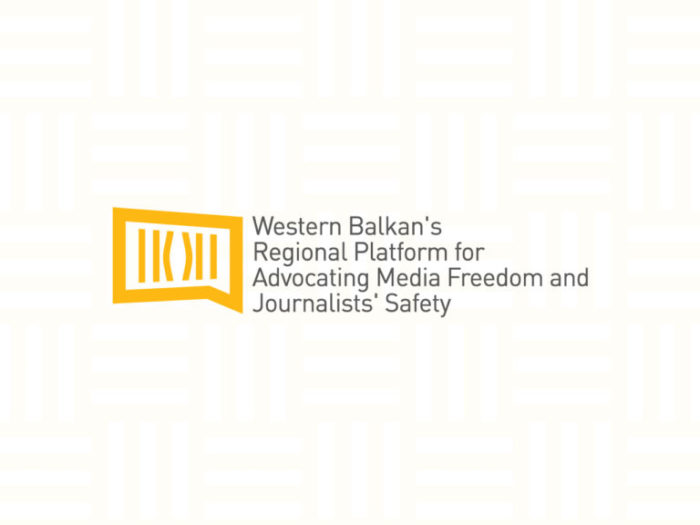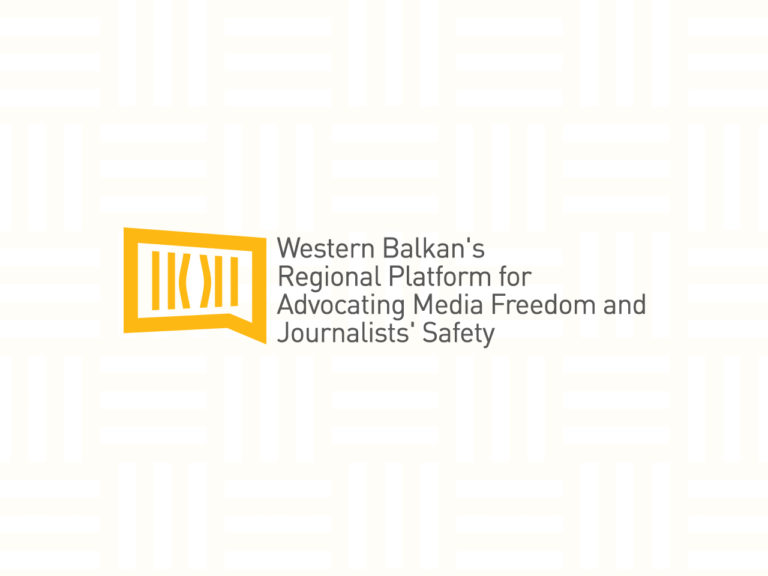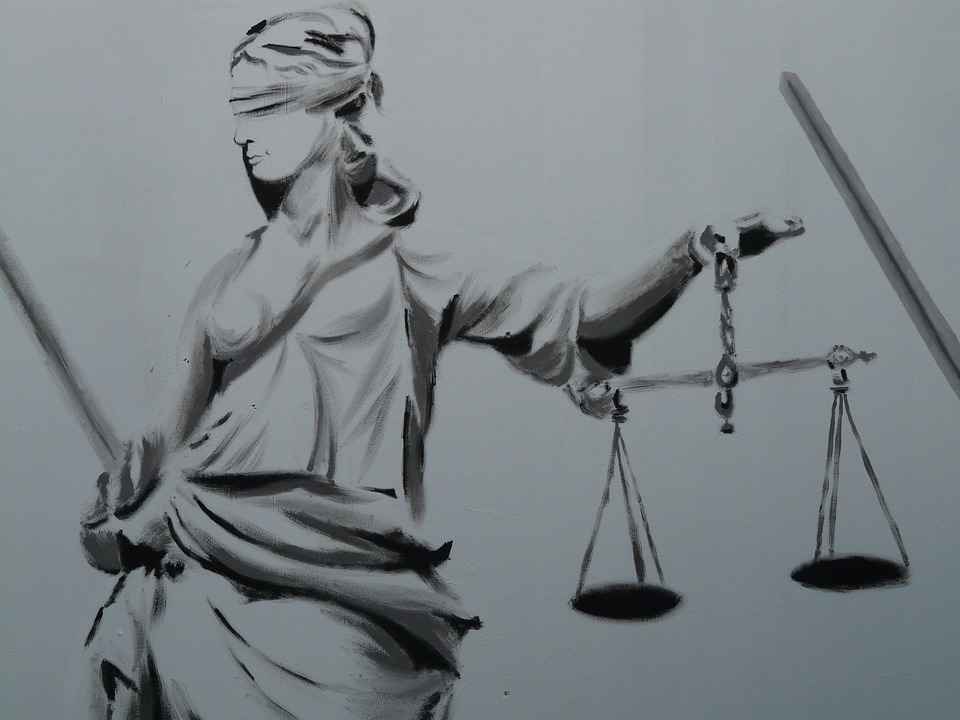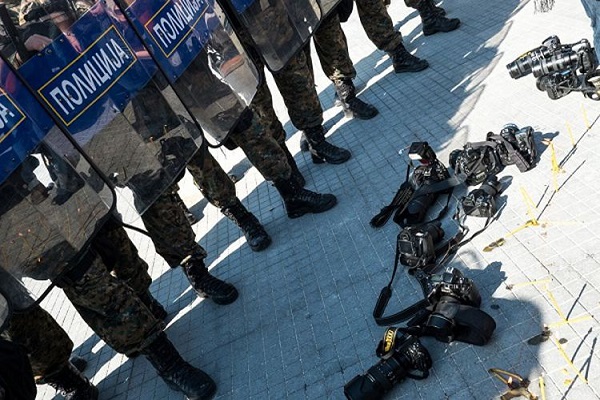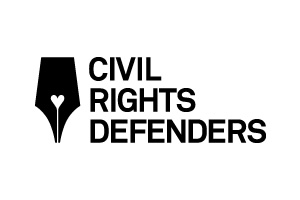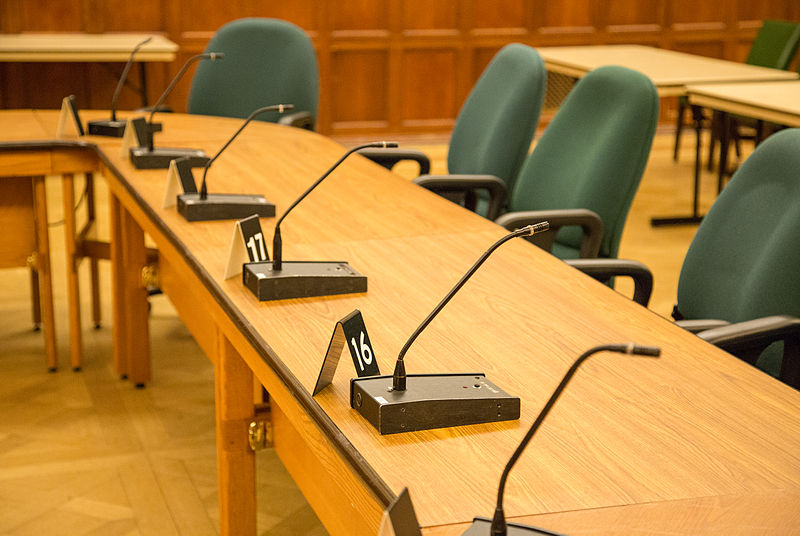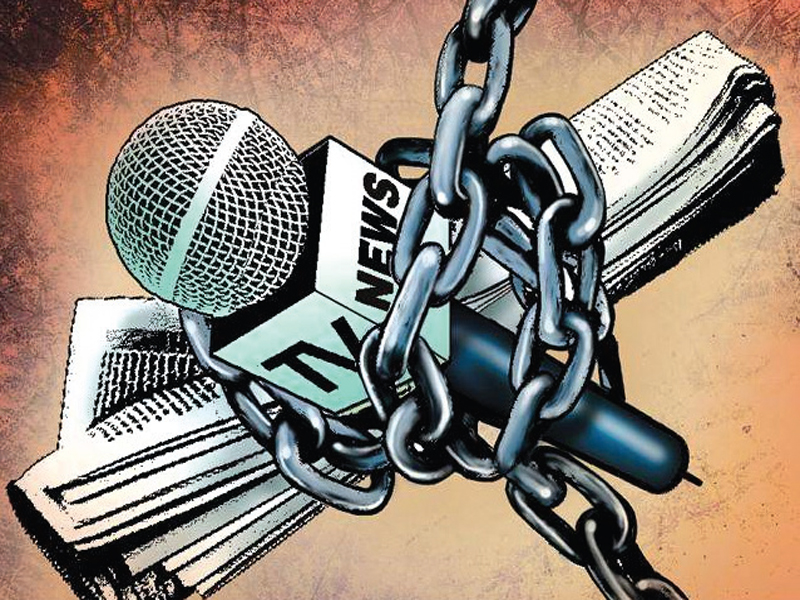BELGRADE, 27.12.2018. – When the trial for the murder of Slavko Ćuruvija started on 14 January 2014, the government announced that the investigation will continue to apprehend and put to trial all those that participated in the journalist’s murder. The current president of Serbia, Aleksandar Vučić, then said: “No one will be exempted” from justice. However, no one else until now except the original four has been accused.
Boss, best man, and a defense witness
Perhaps the case of Branko Crni, one of the leading members of the ruling SNS, best illustrates the (un) willingness of the ruling elite to bring to a close the Ćuruvija murder case and other crimes from the time of Slobodan Milošević, in whose government Vučić himself, as the minister of information, also participated. The current president was the initiator of an undemocratic law against media freedom in October 1998. Ćuruvija’s newspapers – Daily Telegraph and The Weekly European were the first victims of this law. Branko Crni was the first deputy head of the now accused former head of the State Security Service Marković and the chief operating officer of Serbia’s spy agency under Milošević. After the now ruling SNS came to power in 2012, he was often mentioned as a potential candidate for the post of a deputy or advisor to the Security Informative Agency (the new name for the State Security Service).
However, due to his reputation not only in Serbia, but also abroad, this has not happened for the time being. However, his reputation did not prevent him from being, as an informal counselor, to this day a frequent guest at Kraljica Ana Street in Belgrade, where the Security Informative Agency headquarters is based. After October 5, 2000 (The day of the Serbian democratic revolution against Milošević’s dictatorship), Crni was included in the preliminary criminal investigation for the murder of Ćuruvija. After the actual trial started in 2014, he will only appear in the capacity of a witness, and for the defense team. At the trial, he not only testified in favour of his best man, Milan Radonjic, now accused for organizing the murder, but also in favour of all indictees. In his testimony before the court, Crni attacked the prosecution witnesses from the State Security, in particular Stevan Nikčević and Vladimir Nikolić, trying to discredit them. For example, for Nikčević, Crni claimed that he allegedly bribed members of the State Security to illegally provide him with information.
During a long pre-trial procedure for the murder of Ćuruvija, which lasted 15 years, Crni was in contact with witnesses from the State Security all the time. One meeting of Crni with the indictees and witnesses was also recorded by listening devices. In February 2006, in the Belgrade night club “Varadero”, Crni, met with Kurak, now accused as a killer, and a witness Slaviša Arsić, who before the meeting gave evidence about the murder of Ćuruvija to a police inspector Dragan Kecman. Kurak then concluded: “Kecman should be wacked.” At the trial, inspector Kecman testified that Arsić, who was the bodyguard of Crni, was threatening him at the time. Via mobile phone base stations, it was determined that Crni and Radonjić spoke four times on the day of the murder of Ćuruvija and specifically after the crime was committed.
During the trial for the murder of Ćuruvija police investigators and individuals from the State Security testified about numerous pressures and obstructions by the secret service. Dragan Kecman, Mile Novaković and Dragan Karleuša from the police, and Zoran Stijović, Stevan Nikčević and Vladimir Nikolić from State Security. Kecman, who has been conducting the investigation since 2004, said that the witnesses from the State Security were “scared for their lives”, citing specific situations. Novaković and Karleuša, who conducted the investigation in 2001, testified that the State Security was obstructing them and that they even tried to throw the inquiry off the track. Stijović, who arrested the now accused Radonjić in 2001, said that he subsequently came to know that he was ” a target of the killers who came across the Drina [referring to Bosnia and Herzegovina]”. He questioned Marković in 2001, and testified about that: “Marković was frightened and scared about his safety and that of his family.” Stijović, who was seriously committed to fulfill the priorities of the government of Zoran Đinđić (Serbian Prime Minister assassinated in 2003 while in office) at the time, to resolve political killings, was removed from the case in the second half of 2001, and subsequently a target of persecution expelled the State Security.
Return of Major Fića
The contacts between the former State Security leadership, including not only Crni, with secret service witnesses only strengthened after the official launch of the investigation for the murder of Ćuruvije in January 2014. Thus, when the investigation was initiated, a telephone conversation between Dragan Filipović- Major Fića, who was in Shanghai, was recorded with the defendant, accused for murdering Ćuruvija, Miroslav Kurak, who was at the time located in Africa. After that Filipović spoke to Mirjanom Marković, the head of the notorious Yugoslav United Left party and the widow of Slobodan Milošević, who was targeted in the pre-trial procedure for ordering the murder of Ćuruvija.
Filipović was a close associate of all four accused for the murder of Ćuruvija. At the time of the murder, he was the deputy head of the Second Department of the State Security Agency and adviser for “special operations” (in his own words “special operations” meant – assassinations) of the accused head of State Security Marković. In the Second Department of the State Security, he served as a second in command to Radonjić, who from that position went on to become the Chief of the State Security for the capital city Belgrade, and for a short period just before the murder of Ćuruvija he performed both functions. Moreover, Filipović, as the Deputy Head of the Second Department, was a superior to Romić, charged as an accomplice to the murder. Filipović was also in charge for the co-operation between the State Security and the Unit For Special Operations (Special operations armed force attached to the State Security whose leadership is sentenced for the murder of the Serbian Prime Minister Zoran Djindjic), where Kurak was an instructor.
In his book “Anatomy of the Globalist Stench”, Filipović not only acknowledged that he was Marković’s adviser for assassinations, but also described how the State Security’s leadership politically changed sides after the democratic revolution on October 5th 2000. He wrote that after the election victory of Vojislav Koštunica over Slobodan Milošević, he attended a meeting of the State Security leadership where it was agreed: “To recognize Koštunica’s victory and to rely further on radicals (the author’s remark:” radicals “are the Serbian Radical Party from which the ruling SNS emerged in 2008) and national forces “. In the same paragraph, Filipović justifies the murder of Ćuruvija, repeating Mirjana Marković’s lies from November 1998 when she publicly called Ćuruvija a traitor, arguing that he supported the United States in their wish to bomb Serbia.
“He publicly supported the American bombing, calling it a democratic act,” he said. “This was probably the reason he [author’s remark: Ćuruvija] was killed somewhere at the beginning of the war [author’s remark: referring to the 1999 NATO bombing campaign of Serbia], in the break between the two, ‘democratic bombings’. For his death, the globalists blame the State Security alone, although, objectively, it could have been organized and carried out by any of the patriotic groups that were dozens at that time in Serbia, “writes Filipović.
Through his nephew Marko Blagojević, the current Serbian ambassador to Cyprus, and the 106th on the ruling SNS on the list for the last parliamentary elections, Filipović maintains contact with the authorities. Many years earlier, Filipović hired his nephew Blagojević as a driver in the reserve of the Unit for Special Operations (JSO – see above). Blagojević, who was also his uncle’s driver for a while, had a fast-paced career in the diplomatic service since the SNS came to power. First, without an open competition for a position, he was appointed as adviser to the Minister of Foreign Affairs Ivan Mrkić, then he was the Secretary General of the Ministry, subsequently appointed as Ambassador of Serbia to Cyprus in early 2017.
After a long exile in Shanghai, where he was after the “Saber” campaign in 2003 (massive law enforcement operation that followed the assassination of Prime Minister Đinđić), Filipović temporarily returned to Serbia in December 2015. Vuk Drašković, the leader of the Serbian Renewal Movement (SPO), who was himself repeatedly a target of the State Security assassins, spoke about Filipović ‘s arrival to the country.
“Filipović returned to, with intimidation or in some other way, perhaps by bribing witnesses and judges, overturn the indictment for the murder of Ćuruvija and ensure in the Appellate Court the acquittal for Radonjić, Romić and Stevan Basta for the Budva assassination attempt on myself.”
| Protection State Security
From secret service that acted as mafia organization and political police for more than half century, nobody has ever been convicted, except Milorad Bracanović, deputy commander of JSO Milorad Ulemek and intelligence officer of that unit. Bracanović was sentenced only two years for not reporting the murder of Ivan Stambolić. Milorad Ulemek and members of JSO who were “contractors” for secret service, as well as the last head of DB Radomir Marković, who came from ordinary police to transmit orders of Slobodan Milosević, were sentenced earlier for political killings. To date even the lustration of members of State Security has not been performed.
|
Fear and witnesses amnesia
Some witnesses from DB in proceedings for the murder of Ćuruvija on the trial started to suffer from sudden amnesia, and some of them refused to answer, stating that they are threatened. For example, in February 2016 Aleksandar Radosavljević forgot his statement during the investigation. Radosavljević, who was participating in a secret following of Ćuruvija, in investigation in 2007 testified that near the crime scene he saw a white “golf”, for which was established that it was used by the accused Romić. At the trial Radosavljević said that he does not remember seeing the car. On the question of the deputy prosecutor in charge Milenko Mandić in which of the cases secret monitoring of the State Security Agency, except Ćuruvija and Ibar highway (killing of four SPO-opposition party members on 3 October 1999) ended whith murder, Radosavljević said: ”I do not want to put myself in danger”.
Snežana Jovanović, judge of the Special Court, was then reminded that he had the right not to answer to questions by which he would expose himself to criminal responsibility and shame. He used this right. Key witnesses Ulemek and brothers Simović talked about threats and the feeling of danger at the end of September 2016 at the trial, but they did not change earlier testimony. Ulemek repeated the same accusations, but also stated that he was threatened to withdraw from testifying.”I do not want to say who, I can deal with it myself”, says Ulemek. Accused Romić asked him if he was threatened by him, Ulemek replied: ”Directly not, maybe you did and maybe you did not.” Romić then asked him if the accused Kurak threatened him to what Ulemek replied:” I don’t know. He did not introduce himself and who was sending whom we shall see”. The brothers Miloš and Aleksandar Simović, who in investigation confirmed the testimony of Ulemek, at the trial said they fear for the safety of their families if they would talk a lot. Miloš said that he will stick to the testimony given during the investigation, but refused to answer to questions.
“My brother and I have received threats through our family to stop testifying…On television I saw Prime Minister Vučić at the conference when he said he wanted to shed light on all crimes of the past. I believed it will happen this way”, testified Miloš, while Aleksandar Simović said only: ”I do not want to bring my family in a position to have any problems because of my statements.”
Controversial Court decisions
In October 2016 one decision of the Court in another trial had an important significance for the process for the murder of Ćuruvija. Radonjić and Romić, who are being tried for the murder of Ćuruvija, and Stevan Basta were under strange circumstances freed from charges that they helped in an attempted murder of Vuk Drašković in Budva on 15 June 2000. What was unusual that the Court in this trial did not allow evidence from trials for political killings in which a final verdict convicting the accused had been reached. First of all, in the trial for the Budva attempted assassination of Drašković, three members of JSO (Unit for special operations) were sentenced as perpetrators, while Radomir Marković and Milorad Ulemek Legija were sentenced as organizers of the murder. In the verdict, late Slobodan Milošević was identified as the one giving orders for the murder, in whose case it is stated that he asked for the killing of his political opponents was indentify who asked for killing his political opponents.
The most important in this process for assassination of Drašković in Budva is not the release of Radonjić and Romić, who are on trial for the murder of Ćuruvija, but Basta who was seen as a possible cooperative witness. Specifically with conviction the prosecution would have something to offer to Basta, who was the coordinator of State Security Service for media monitoring,and that in turn to testify for murder Curuvija.
Tri-person panel of the Special Court-chairperson Snežana Jovanović and the members of the panel Vladimir Mesarević (son of the former president of the Supreme Court Nata Mesarević) and Dragan Milošević decided in July 2017 to replace the prison custody for Radonjić and Romić in proceedings for murder Ćuruvija with house arrest and the “ankle monitor”. They came out of prison, but the Court of Appeals dismissed the appeal by the prosecution, which already at the initial ordering of custody showed that the accused as former high officials of State Security Service can easily obtain false documents, change their identity and influence the witnesses. Veran Matić, President of the Commission for Investigating Murders of Journalists, whose work was decisive for starting the trial for the murder Ćuruvija, said that the accused have friends and associates who owe them and that could affect the trial.
“Assigning house arrest before hearing all witnesses, the two accused certainly used for their benefit, because they were able to communicate freely with the accused Kurak who was at large, but also with other witnesses. That is why the Commission considers that the Trial Chamber violated clauses of the Law on Criminal Procedure justifying their exemption “ said Matić.
Otherwise, for the same Chamber of the Special Court – Jovanović, Mesarović and Milošević, the Supreme Court of Cassation established that during the acquittal Luka Bojović violated the law in favor of the accused as a leader of the Zemun clan responsible for three murders. Prior to this, the release of Stanko Subotić Cane for whom Vojislav Šešelj and dissidents progressives said that he is financier SNS was also controversial. The Supreme Court also found a breach of law in favor of Subotić, who was originally acquitted by the same Special Court. This Special Court acquitted twice the judge Blagoje Jakšić and while doing it violated the law.
On the trial for the murder of Ćuruvija this Chamber is twice, on 24. april and 12. june 2018, allocated from the court records key physical evidence-discs with registred calls with mobile base stations which established that Kurak and Romić were at the scene, which contradicted their alibi. Court of Appeals in Belgrade annulled the first solution Chamber of the Special Court,explaining that”the evidence was not obtained illegally,as erroneously determined by the court of first instance.”However this does not prevent the Special Court to reallocate that evidence. Finally the decision was reversed and included in the evidence by the Court of Appeals’.
“First, the preliminary proceedings judge accepted the indictment and the evidence in which there are discs with recorded locations of accused. Then the trial court accept this indictment at the beginning of the trial. However the same Chamber later ruled that the evidence excluded from the trial, because in their conclusion, it was illegally obtained”,recalls Veran Matić.
Also the same Chamber excluded from evidence the minutes from the interogation of two important witnesses, who have since died-Cvijetin Milinković duty chief of the Center State Security Service Belgrade, on the day of murder Ćuruvija take duty book,and Zoran Pavić the Mayor 9th Department for secret escort. This proof too was included back in the trial proceedings by the Court of Appeal on the request of the prosecution.
Also this Chamber at the end of trial refused to hear police inspector Dragan Kecman who led the investigation. First he was questioned only on the manner in which he came to obtain the discs with data from mobile base stations. Then member of the Court panel Dragan Milosević, who rarely questions witnesses, began in very sharp way to ask questions and even got into an argument with the inspector. Kecman was then questioned again at request of the prosecution,but the judge Jovanović interrupted not allowing him to go into detail.
Propaganda and pressures
Veran Matić said that in his capacity as President of Commission for investigation of the murders of journalists publicly announced from the facts “that the Trial Chamber clearly leads the process so that accused will be acquited, given the persistence of the decisions which are key evidence excluded despite the decision of Appellate Court.”He reminds us that for his oppion he was sharply attacked by the Lawyers Association of Belgrade. Lawyer’s Association of Belgrade, the part that is led by attorney Jugoslav Tintor and by the defense attorneys of the accused for the murder of Ćuruvija.
“They even sought to establish as criminal offenses the violation of the presumption of innocence, with imprisonment up to three years. My conviction was joined by Judges Association and the High Judicial Council. Later in public debate it was concluded that there was no violation of the presumption of innocence and pressure on the court. The Trial Council refused to take all the evidence to the end and announced the quick conclusion of the process” said Matić.
He notes that at the end of trial, they began to prepare a public opinion for the acquittal.
“In the weekly Illustrated Politika, which is owned by the state, text relativizes the case of murder Ćuruvija and claims that there is no evidence against the accused. The same author of the text(Đorđe Martić),just a few days before the murder took place, wrote a text that falsely accuses Ćuruvija for asking for the bombing of Serbia.Today the same author fiercely attacks independent media from the same positions banning them in 1990’s”said Matić.
In last text in Illustrated Politika Veran Matić and Ljiljana Smajlović-also a member of the Commission ,and friends of the killed Ćuruvija, are attacked in the most primitive manner. Prior to that in daily Politika on May 19,2017, a text in which Prime Minister Zoran Đinđić is blamed for the murder of Ćuruvija appeared. Đinđić in reality insisted on launching an investigation into the murder of journalists.The author of articles in Illustrated Politika and Politika is Đorđe Martić who was a witness in the trial for murder Ćuruvija, and the editor of the Express Politika as the propagandist of Milosevic’s regime at the end of 20 century.He, as editor of Express Politika approved the shameful text “Ćuruvija greetings bombs” which was the prelude to murder of journalist,because it was published just three days before the liquidation.This text,as it was established,was published on the order of Mirjana Marković.Text was then read in the state television news bulletin. Propagandist Martić,at the trial testified on July 2016,continued to falsely accuse the murdered Ćuruvija,
“Ćuruvija had close ties to those who bombed us,so I did not have the moral right not to publish the text…The journalist and I talked and I advised him to put it in text,”Martić testified,who two years later complates trial at end continual dirty propaganda work as well as before Ćuruvija murder.
President Aleksandar Vučić has superficially fenced off the title star and title in Illustrated Politika,whose state is the majority owner. However,the state and its institutions have not extended the investigation yet to some more involved in murder Ćuruvija,and even after more than two years it has not been established who threatened key witnesses in process for killing Ćuruvija, as well as why some other witnesses felt threatened.
Branko Crni, Dragan Filipović, Franko Simatović-Frenki,state officials and institutions are silent about the activities of DB leaders from the time of killing Ćuruvija. The request was not repeated to Russia to extradite Mirjana Marković,who has never been heard on the occasion of murder Ćuruvija. Even a permanent working group for finding Miroslav Kurak , who is a direct perpetrator, was not even formed. Kurak is still on run.
The present government cannot hide its responsibility for this trial beyond the independence of judiciary, which is otherwise put in question both by the judges themselves and by international observers. That is why the final judgment in the case will also reveal the true attitude of authorities towards the murder Slavko Ćuruvija.

This article has been produced as a part of the project Western Balkan’s Regional Platform for advocating media freedom and journalists’ safety with the financial assistance of the European Union. The contents of this article are the sole responsibility of the Independent Journalists’ Association of Serbia and its authors, and can in no circumstances be regarded as reflecting the position of the European Union.


